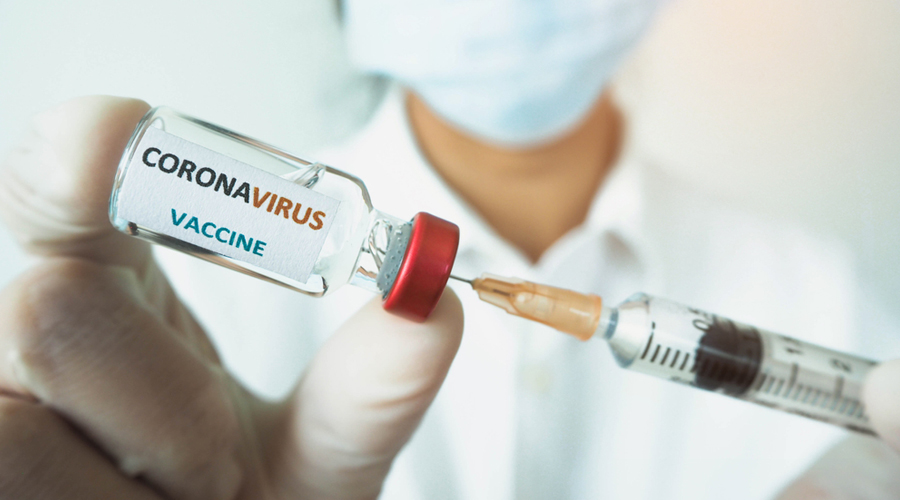India’s homegrown candidate vaccine against the novel coronavirus disease developed by the Hyderabad-based Bharat Biotech has generated a dual immune response that has raised hopes of immunity lasting six to 12 months.
The candidate vaccine named Covaxin generated anti-coronavirus antibodies and stirred immune memory cells in the vaccinated volunteers, researchers with Bharat Biotech and the Indian Council of Medical Research said in a scientific paper released on Wednesday.
The paper, describing the results of safety and immunogenicity trials in 380 volunteers in nine hospitals across the country, has also reported similar immune responses across age groups. The trials offered the candidate vaccine to volunteers aged between 12 years up to 65 years.
The immune responses, including neutralising antibody concentrations, observed in the recipients three months after the second dose of the vaccine have prompted the researchers to speculate that the immune responses could last six to 12 months.
But the researchers have asserted that these results measure only immune responses and whether and how they translate into actual protection from the infection would become clear only through efficacy trials now underway in 12 cities across India.
In the efficacy trials, around 25,800 healthy volunteers would be divided into two groups — those in one group would receive the vaccine,
the others would receive placebo, or dummy jabs. Significantly fewer Covid-19 infections in the vaccine group than in the placebo group would signal the vaccine’s efficacy.
“The available results look very promising — especially because the vaccine appears to stimulate two important arms of the immune system,” said Tanmay Majumdar, a scientist at the National Institute of Immunology, New Delhi, who was not associated with the vaccine.
Majumdar and other scientists say a key question about any Covid-19 vaccine is how long would it protect people from the infection.
“The neutralising antibodies are critical to blocking the virus from entering cells and preventing immediate infection. But over time, we need memory T cells to activate B cells into making antibodies — the immune response data suggests that this vaccine induces T cell memory responses,” Majumdar said.
Bharat Biotech is among three companies that have applied to India’s drug regulatory agency seeking emergency use authorisation of the vaccine. The other two companies are the US-based Pfizer with its candidate vaccine and the Pune-based Serum Institute of India with the AstraZeneca-Oxford vaccine.
The promising trial results have also prompted an American company to sign a pact with Bharat Biotech to shepherd the candidate vaccine into the US market, the first Covid-19 technology transfer from India to the US.
Ocugen Inc, based in Malvern, Pennsylvania, and Bharat Biotech on Tuesday announced a “binding letter of intent” under which Ocugen will have the US rights to Covaxin and will take responsibility for its clinical development, registration and commercialisation in the US market.
Covaxin is made from an inactivated (killed) coronavirus isolated earlier this year by scientists at the ICMR’s National Institute of Virology, Pune. Along with Covaxin, India is also conducting trials on two candidates — AstraZeneca-Oxford and Russia’s Sputnik V — developed outside India.
In preparation for the development of Covaxin in the US, Ocugen has assembled a vaccine scientific advisory board featuring academic and industry experts who will guide the clinical and regulatory pathway to approval in the US market, the company said.
“Covaxin uses a historically proven vaccine design approach,” said Harvey Rubin, an infectious disease specialist and professor of medicine at the University of Pennsylvania and a member of Ocugen’s vaccine scientific advisory board.
The inactivated virus candidate vaccine has elicited strong immune responses against specific target proteins on the coronavirus along with strong cellular responses, Rubin said.
“Covaxin offers a vaccine candidate different from other options currently available in the US market with potentially broader coverage against multiple protein antigens of the virus.”
Scientists familiar with vaccine designs point out that inactivated virus vaccines against other infections have been used for more than 70 years. Because they are made up of whole virus particles, inactivated virus vaccines are expected to trigger a broad immune response to multiple viral proteins.
“We believe this unique yet traditional approach to vaccination holds great potential to appeal to a broad range of the population,” Shankar Musunuri, chief executive officer and Ocugen co-founder, said in a media statement. “We’re very pleased with the demonstrated safety and immunogenicity results.”
Krishna Ella, chairman and managing director of Bharat Biotech, said the company had received expressions of interest for the supply of the vaccine from multiple countries.
“We’re excited to collaborate with Ocugen for the US market,” Ella said.











